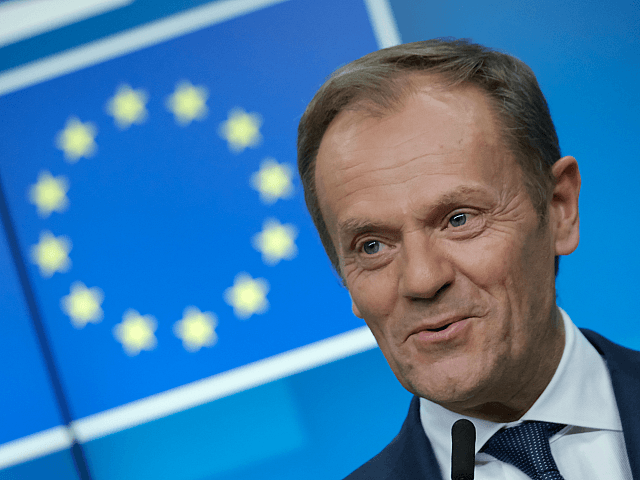President of the European Council Donald Tusk said that it would be “unacceptable” to “betray” the people who signed an online petition and marched in London to stop Brexit.
Addressing the European Parliament in Strasbourg, France, on Wednesday morning the Polish progressive said that he maintains the European Council should be “open” to a long Article 50 delay “if the UK wishes to rethink its Brexit strategy, which would, of course, mean the UK’s participation in the European Parliament elections. And then there were voices saying that this would be harmful or inconvenient to some of you.
“Let me be clear: such thinking is unacceptable. You cannot betray the six million people who signed the petition to revoke Article 50, the one million people who marched for a People’s Vote, or the increasing majority of people who want to remain in the European Union.”
Mr Tusk added, “They may feel that they are not sufficiently represented by the UK parliament, but they must feel that they are represented by you in this chamber. Because they are Europeans.”
Farage to EU: ‘Do You Really Want Me Back? Reject Brexit Delay, Get UK Out’ https://t.co/HImm8GnOCJ
— Breitbart London (@BreitbartLondon) March 27, 2019
While 17.4 million people voted in a legally-binding referendum to leave the European Union in June 2016, Tusk seeks to elevate the “one million people” who marched on a demonstration organised by establishment politicians, the numbers of which one crowd science specialist estimated at being actually far less at between 312,000 and 400,000 people.
As for the online petition, a recent poll showed that 52 per cent of Britons believe the petition to cancel Brexit, which passed the five million mark on Sunday, is “irrelevant” — that majority including 28 per cent Remainers.
And recent polling has also found that staying in the EU has only 35 per cent support, whereas the combined leave options (including leaving on WTO terms on Friday or leaving after a delay) is supported by 50 per cent of those surveyed.
German Left Party MEP Gabriele Zimmer shared a similar sentiment to Tusk in the European chamber on Wednesday, saying that while “we have to act in a way that shows full respect for those that voted for Brexit in the referendum” the European parliamentarians “need to act in full respect of those who demonstrated in London at the weekend and we act in respect of those who signed an online petition.”
Polls: Most Britons Think Parliament ‘Determined’ to Stop Brexit, Remainer Petition ‘Irrelevant’ https://t.co/VBtpKdOCrh
— Breitbart London (@BreitbartLondon) March 26, 2019
Brussels has not consistently “respected” the democratic expressions of its member states in the past, however, with countries being asked to vote again — if voting against the EU — until they gave the right answer.
Denmark voted against the Maastricht Treaty in 1992 and was asked to vote again; the Republic of Ireland voted against the Nice Treaty in 2001 and was made to vote again; France and the Netherlands voted against the EU Constitution in 2005 but were ignored; and Ireland voted against the Lisbon Treaty in 2008, but was asked to vote again.

COMMENTS
Please let us know if you're having issues with commenting.